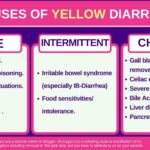Burning Sensations After Pooping: 7 Causes & Treatments.
Our content is not intended nor recommended as a substitute for medical advice by your doctor. Use for informational purposes only.
The burning sensation after poop is either due to spicy food or local anal and rectal diseases such as anal fissures, hemorrhoids, or rectal inflammation due to severe diarrhea, IBD, or proctitis.
The causes of burning sensation after pooping will be discussed in detail in this article.
Table of Contents
1 . Spicy foods.
Spicy foods are the most common cause of a burning sensation after pooping. Spicy foods leave a burning sensation lasting up to three days after eating.
The more spicy the food, the more burning sensation you will get. Spicy foods are often the cause of the burning sensation in more than 90% of the causes.
Why do spicy foods cause a burning sensation only after pooping?
The burning sensation is a somatic type of sensation. Your intestine (the small intestine and the colon) doesn’t have receptors for this type of pain.
Your stool often presents in the last parts of your colon (the descending and sigmoid colon), insensitive to the Burning sensation.
The last part of the anorectal canal and the perianal area is sensitive to the burning sensations from spicy foods. Therefore, when you poop, the spicy stools contact this area leading to a burning sensation after pooping.
How to reduce the burning sensation from spicy foods?
The most important thing to reduce the burning sensation is to clean your perianal area with water. This helps the clearance of the food remnants, which irritate this area.
The burning sensation after pooping is often short living (unless you have a disease such as fissures and hemorrhoids). So, Don’t try other interventions unless the burning sensations last longer.
You can apply a soothing cream (calamine-containing creams) in such a case. In severe cases, a cream with a local anesthetic may be needed.
2. Fissures.
Fissures are thin tears in the mucosa (the thin, moist lining of the anorectal canal. They are prevalent (especially in people with severe constipation).
The most common three causes of fissures are:
- Chronic severe constipation.
- Explosive or persistent diarrhea.
- During normal delivery (childbirth).
Symptoms:
- The most common symptom of anal fissure is pain or burning sensation during and after pooping.
- Passing mucus in stool.
- In chronic conditions, You may feel a skin stage at the anorectal opening.
- In severe cases, blood is on the outside of the stool.
What to expect:
- The condition has to be confirmed by your doctor. Fissures are often diagnosed by your doctor’s gloved fingers at a local examination.
- Most fissures are self-healing within a few weeks. However, some may turn chronic, causing a burning sensation after pooping.
- Treatment includes local medications to help the healing of the fissure, reduce the sphincter spasms, and reduce the pain.
- The most crucial step is to spot and treat the fissure’s cause and modify your diet (eating more fiber).
3. Inflammed hemorrhoids.
Hemorrhoids are dilated inflamed veins in the anorectal area. They often have mild or no symptoms. However, when the inflammation is severe, hemorrhoids can cause recurrent burning sensations after pooping.
Symptoms:
- Painless passage of bright red blood with the stool is the most common symptom.
- Burning sensation after pooping in the anal and perianal area (perianal pruritis). The pain is more common with inflamed, thrombosed hemorrhoids.
- Straining during pooping.
- Soiling accidents.
- A sense of fullness in the anorectal canal.
Treatment and what to expect:
- Your doctor should evaluate hemorrhoids, as many cases may require surgery.
- Bleeding hemorrhoids can cause significant blood loss and anemia.
- Always obtain enough fluids and a high-fiber diet to prevent constipation and straining.
- A fiber supplement may also help, such as psyllium (Metamucil).
- Topical ointments and creams containing local anesthetics and antiinflammatory agents are often enough for the burning sensations.
- If you already have hemorrhoids, a new onset burning sensation after pooping can be a sign of inflammation or thrombosis of the hemorrhoids. So, consult your doctor.
4. Prolonged or severe diarrhea.
Prolonged or severe attacks of diarrhea can occur due to a variety of causes, such as:
- Severe gut infections (viral, bacterial, or protozoal.
- Celiac disease.
- Irritable bowel syndrome (see below).
- Inflammatory bowel disease (Ulcerative colitis, Crohn’s disease, and Microscopic Colitis).
- Malabsorption syndromes (such as SIBO, tropical sprue, etc.).
- Chronic infections of the digestive system.
- Endocrinal diseases such as hyperthyroidism
- Neuroendocrine tumors such as carcinoids.
Chronic diarrhea affects the integrity of the lining of the anorectal canal and the perianal area. Chronic or severe acute diarrhea leads to a burning sensation after pooping. It may also lead to severe local complications such as fissures.
Treatment of the resulting burning sensation is directed to the treatment of diarrhea. Once diarrhea stops, the anorectal area heals, and the burning sensation often disappears.
5. IBS.
Irritable bowel syndrome is a chronic disease of unclear cause. It affects about 10-15% of people worldwide, particularly females.
Symptoms suggesting IBS (ref):
- Recurrent abdominal pain at least one day per week for the last three months.
- The onset of pain is associated with stool frequency (diarrhea or constipation).
- The abdominal pain is relieved (or increased) after defecation.
- Change in stool form (loose or hard stools).
- Mucus in stool, or rarely, mucus only stool.
- Absence of other causes of the above symptoms.
- Burning sensation after pooping.
The burning sensation after pooping with IBS can be due to severe or persistent diarrhea or hypersensitivity to pain in the anorectal area (reference).
6. Sexually-transmitted disease.
STDs are not confined to the genital system. Many STDs can affect the anorectal area, such as:
- Rectal gonorrhea.
- Chlamydia causes severe tenesmus, rectal ulcers, mucus, and blood in the stool. It is possible to have mucus-only poop with chlamydia infection of the rectum and anal canal.
- Syphilis causes painful ulcers and anorectal pain, and discharge (mucus).
- Sexually transmitted campylobacter Jejuni: causes ulceration of the rectal mucosa, diarrhea (which can be bloody and mucous, cramps, bloating, and mucus in stool.
Although not common, STDs can cause a burning sensation after pooping.
Symptoms and when to suspect:
- Recent anorectal sexual activities with an infected or carrier partner.
- Your partner doesn’t need to have symptoms.
- The most commonly reported sexually transmitted disease in the USA is Chlamydia. It can cause rectal ulcers or access. This presents with severe anorectal pain, mucus-only poop, or pus discharge.
- Fever may also present.
8. Others.
- Parasitic infections (especially tapeworms).
- Severe rectal infections such as Bacillary dysentery and amoebic dysentery.
- Solitary rectal ulcer syndrome.
- Anorectal cancers and polyps.
- Perianal skin diseases.
- Radiation colitis.
MORE: Why Does My Poop Feel Sharp? 7 Causes Explained In-depth.
- Evidence-based
- Written by a doctor.







